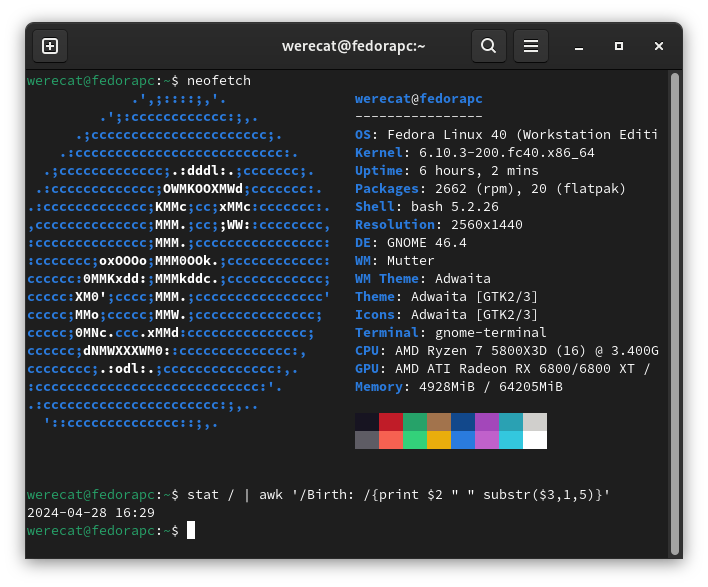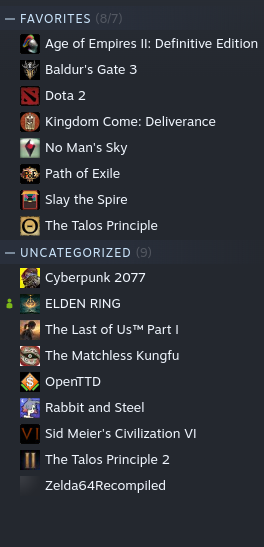I’ve tried to switch multiple times and always found or encountered some issue that got me back to Windows (on desktop PC).
Last year it was after 2 months on Fedora 38 KDE when I had enough with the KDE Window Manager acting weird and broken unusable VRR on desktop and some other smaller but daily issues that I went back to W11 on my PC.
I like GNOME over KDE and back then there was no VRR support on GNOME so I only had to stick with KDE, now it’s a different story.

I still have some minor annoyance which are probably solvable but I don’t know how as I didn’t put enough effort in finding solution.
Namely:
1.) Sometimes my 2nd monitor after boot remains blank and I have to unplug and plug back in the DP cable from the graphics card. Typically happens after a kernel update or restart but rarely on cold boot. I’ve seen others having this issue on Fedora40 but I haven’t seen any solution mentioned.
2.) Steam UI hangs up sometimes for several seconds when trying to navigate fast trough it and especially if it needs to pop a different window.
3.) GPU VRAM OC is completely busted and even doing ±1MHz will result in massive artifacting even on desktop, not a big deal but I would take the extra 5% boost I can have from VRAM OC on Windows :)
4.) After every Kernel update I have to run two commands to get my GPU overclock to work again. I haven’t figured out yet how to make a scrip that can read output from 1st command and copy it into 2nd command so I just do it manually every time which is roughly once a week.
5.) Free scrolling does not work in Chromium based browsers :( Luckily Vivaldi has some nice workaround with mouse gestures but I would still like free scrolling like on Windows.
And these are about the only annoyance I found worthwhile to mention.
Gaming works fine.

The apps I use typically work fine on Linux as well. Mangohud is amazing. No issues with audio unlike my last experience. Heck even Discord has no issues streaming video and audio now despite just using the web app. VRR despite being experimental works flawlessly on GNOME for me. I’m happy.


Red Hat Enterprise Linux is a professional Linux OS and a product of Red Hat. It costs money and the source code is only available to paying customers.
Fedora is a distro maintained by volunteers. It’s free and open source.
Both aren’t especially focusing on servers and security. RHEL is focusing on stability and long support duration for servers and workstations, Fedora is focusing on pushing new technologies for the desktop.